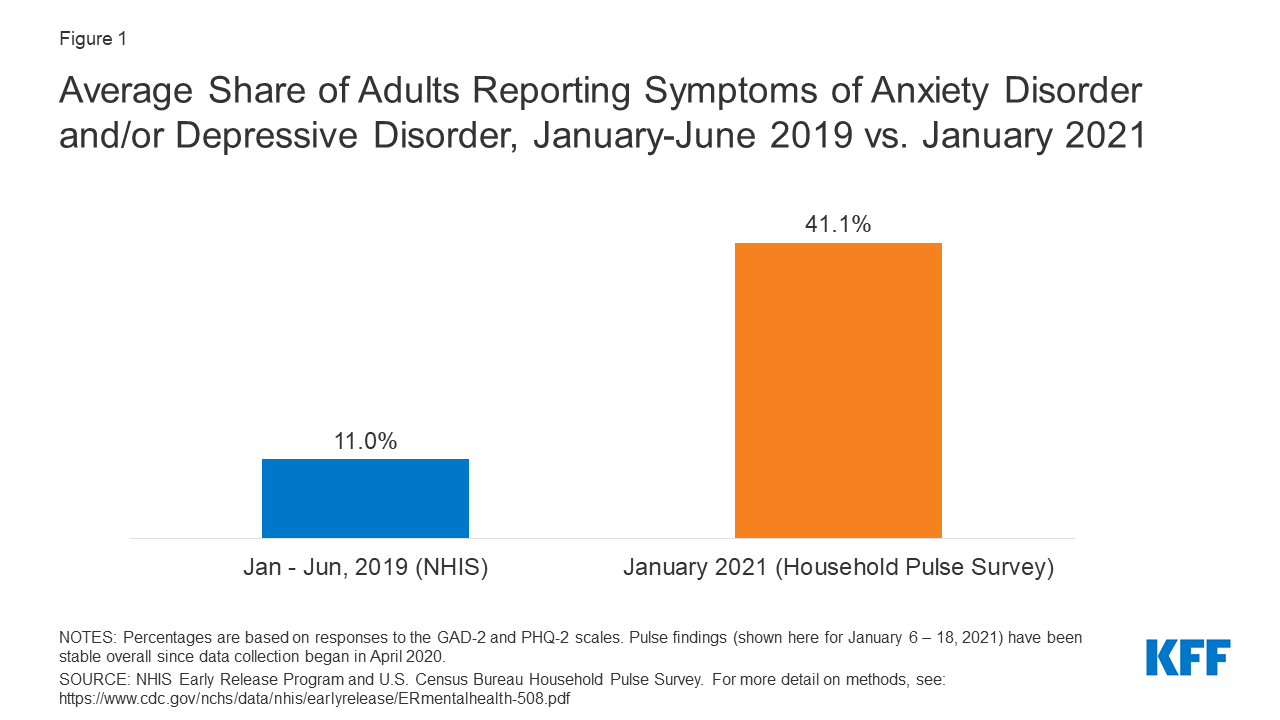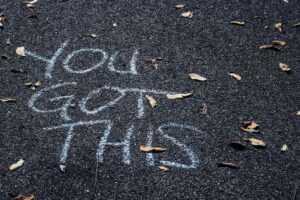We are coming up on the one year anniversary of COVID-19. This has me reflecting on what a difficult and challenging year this has been for us all–especially on our mental health.
Mental health is an important part of our physical health and personal well-being. Internal and external stressors on our mental health increase sadness, anxiety, isolation, depression and energy levels. For many people (myself included), this year has been really difficult on mental health. The pandemic has been stressful in many ways by increasing our anxieties, decreasing our social networks, and affecting our sleeping, eating, substance use, and stress levels. The pandemic has also created new barriers to receiving mental health supports for many people, which only exacerbates a negative decline in mental health.
Below is a graph that I found that clearly shows just how impactful the pandemic has been on many peoples mental health.

So, What Are We Gonna Do About It?
COVID has put us all in a position of loss in one way or another. We cannot control what is happening globally but we can control how we react to our current situation. One way to help in this process is through mindfulness. Mindfulness works by helping one to accept their experiences (even painful ones) rather than to react with aversion and avoidance.
Mindfulness exercise can help people to become more aware of their thoughts, feelings, and body sensations instead of being overwhelmed by them. Paying attention to the present moment by using mindfulness techniques like meditation, breathing, yoga, and getting outside and connecting with nature–all helps to control emotions, concentration, and improve mental health.

Stress Management in Schools
Student’s have many stressors in their lives. The academic and social demands can be difficult to manage and it is important that we, as teachers, use a stress-aware lens in order to reframe negative behaviors in the classroom. One strategy that can help reduce the effects of stress on students lives is through educating students on the effectiveness of mindfulness practices.
Mindfulness is a self-regulation practice. Students are better able to effectively help themselves, and their peers to self-regulate their behaviors and emotions (returning to a calm and alert state) when integrating mindfulness practices like yoga and breathing to their daily lives. In doing so students will decrease the level of stress they are experiencing, they will be better able to connect to themselves and their peers, and will become more equipped to concentrate and learn.

It is important that we all take the time to pause, breathe, and reflect. We should ensure that we are connecting to others, keeping (or integrating) healthy routines, and being patient and kind with ourselves and one another.

Photo by sydney Rae on Unsplash
Sources:
Panchal, N., Kamal, R., & Cox, C. (2021). The Implications of COVID-19 for Mental Health and Substance Use. Retrieved from: https://www.kff.org/coronavirus-covid-19/issue-brief/the-implications-of-covid-19-for-mental-health-and-substance-use/
https://www.mentalhealth.org.uk/a-to-z/m/mindfulness
Gifs retrieved from: Giphy.com





